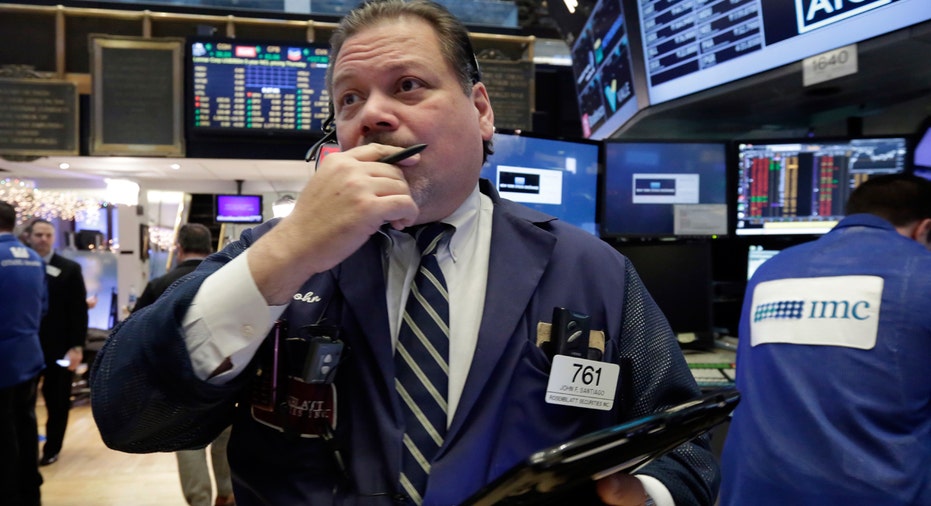Markets Say Trump's Tax Reform Needs Some Love

Is the Trump Rally officially over? Not by a long shot, traders and investors say, unless the President continues to waffle on the very platforms that triggered the market rally in the first place: His plans to cut taxes and reduce regulatory burdens.
President Trump hasn’t disavowed his plans to reduce the corporate tax rate to 15%-20% from its current level of 35% (among the highest in the world). Nor has he walked back his plans to reduce individual tax rates as part of a broader tax reform effort.
In recent days the new President even emphatically pledged to slash 75% of all regulations during his term.
And yet, traders and investors are getting nervous about Trump’s ambitious agenda – which includes the heavy lifting involved in repealing and replacing Obamacare. Trump’s habit of getting side tracked on issues like building what will likely be an expensive wall between the U.S. and Mexico, means economic items like the tax and regulatory cuts have been given second-class status.
Yes the President issued plenty of executive orders including a controversial one banning immigration from certain Muslim majority nations. Totally absent was any directional announcement about tax cuts or even the slightest detail on what regulations will face the knife.
Many people close to Trump now say tax reform will be dealt with well past the critical first 100 days in office, when presidents tend to outline their legislative priorities and have the political strength to pass them through Congress. In fact, people close to the administration say tax reform might have to wait until the second half of the year or be taken up in 2018.
The lack of urgency for tax reform was underscored Monday during the administration’s daily press briefing. When FOX Business Reporter Blake Burman asked White House Press Secretary Sean Spicer to elaborate on the timing of the tax-cut plan, Spicer side-stepped the question, suggesting Congress needs to take the first stab at the issue.
Spicer called tax reform “a two-way street” between the White House and Congress, adding: “I think that you’ve seen a commitment from the President to fight on behalf of small businesses…We are going to see with both houses of Congress, both the Senate Finance Committee and the House Ways and Means Committee, develop a comprehensive tax plan and I think there’s eagerness on behalf of Congress to do that as well so that’s a very promising thing.”
With that the Dow Jones Industrial Average plummeted more than 200 points before recovering some losses and finishing the day down around 122 points.
Of course, this is just President Trump’s first week in office, but tackling thorny issues like tax reform requires political focus, which market players see little evidence of so far. “People want to buy stocks since Trump has been elected,” said David Seaburg, the head of sales and trading at Cowen & Co. “But the market needs affirmation on Trump’s tax plan. If that doesn’t come at some point, you can see stocks trade off even more.”
Seaburg believes the necessary groundwork for corporate and individual tax cuts, as well as regulatory changes, needs to be set into motion at least sometime during the first part of this year.
“If it doesn’t come by that time, stocks could tank,” Seaburg added.
After that, investors will begin to value stocks based on current earnings metrics that don’t include the fiscal stimulus they have been banking one since Nov. 8, when Trump beat his Democratic rival Hillary Clinton to become president, and Republicans kept both the House and the Senate.
Aides to Trump haven’t helped matters, traders say. Trump has packed his cabinet with Wall Street types, rather than free market gurus. Trump named former Goldman Sachs president Gary Cohn the head of his National Economic Council despite Cohn being a long-time Democrat who voted for President Obama and favored many of his polices, including tax increases on businesses and individuals.
Wilbur Ross, a billionaire financier, is Trump’s choice to run the Commerce Department, but he has favored punitive measures, like tariffs against China, for what he sees as unfair trading practices.
Meanwhile, free market evangelist Larry Kudlow, an economist who wrote Trump’s tax cut plan during the campaign, hasn’t received his expected appointment to become head of Trump’s Council of Economic Advisers, a key economic position. Many people close to Trump say they doubt Kudlow will be asked to join the administration any time soon because he favors issues like free trade, which have come under scrutiny by Trump and his senior aides.
Of course, Trump can easily fix things by at least signaling to the market that he is serious about reforming the tax code and slashing regulations sometime soon, and with that the markets will continue their upward trajectory.
But he’s running out of time and investors appear to be running out of patience.
“It's only going to take the slightest outline of what this looks like to give comfort to the market on this. Certainly the administration knows this and will release something accordingly,” said Michael Block, chief strategist for Rhino Trading Partners.
Block adds if Trump waits beyond the promised first 100 days to make his moves, “industrials are going to start underperforming, as will materials and financials.”
In other words, stocks will tank.



















